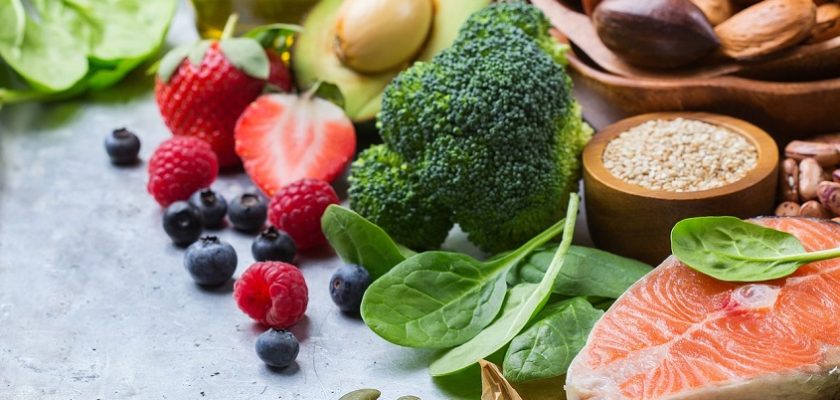The Importance of Balanced Nutrition for Maintaining a Healthy Weight
- Updated on: May 6, 2025
- Published on Feb 2, 2023

Maintaining a healthy weight is crucial for overall health and well-being. Being at a healthy weight can help prevent and manage a wide range of health conditions, such as diabetes, heart disease, and certain cancers. Additionally, maintaining a healthy weight can improve physical function, reduce the risk of injury, and increase overall energy levels and self-esteem.
One of the most important aspects of maintaining a healthy weight is ensuring that you have a healthy body composition. Body composition refers to the ratio of lean muscle mass to fat mass. Having a higher percentage of lean muscle mass and a lower percentage of fat mass is associated with better health outcomes, including improved metabolism, increased insulin sensitivity, and better overall cardiovascular health.
Achieving and maintaining a healthy weight also requires a balance of energy intake and energy expenditure. Energy intake refers to the amount of calories consumed through food and drink, while energy expenditure refers to the amount of calories burned through physical activity and daily living. To maintain a healthy weight, it is important to balance energy intake and expenditure by consuming a healthy diet and engaging in regular physical activity.
It is important to note that a healthy weight is different for everyone and is influenced by factors such as age, sex, height, and muscle mass. Therefore, it is important to consult with a healthcare professional to determine what a healthy weight is for you and to develop an individualized plan to achieve and maintain it.
The Basics of Balanced Nutrition
Macronutrients: Macronutrients are nutrients that are required in large amounts to support growth and energy. The three main macronutrients are carbohydrates, proteins, and fats.
Carbohydrates are the body’s main source of energy and are found in foods such as grains, fruits, and vegetables. They are broken down into glucose (sugar) which is used by the body for energy.
Proteins are essential for growth and repair of body tissues. They are found in foods such as meats, dairy products, and legumes.
Fats, also known as lipids, are important for maintaining cell membrane structure, insulation and energy storage. They are found in foods such as nuts, seeds, avocado, and oily fish.
Micronutrients:Micronutrients are essential vitamins and minerals that are required in smaller amounts, but still play a vital role in maintaining good health. Examples of micronutrients include vitamins A, C, D, and E, and minerals such as iron, calcium, and zinc.
Vitamins are essential for maintaining good health, growth, and development. They are needed in small amounts and are mostly found in fruits and vegetables. Some vitamins, such as vitamin D, can also be produced by the body when exposed to sunlight.
Minerals are essential for maintaining good health, growth, and development. They are needed in small amounts and are found in a wide variety of foods such as dairy products, nuts, and leafy green vegetables.
Recommended daily intake for each macronutrient and micronutrient:
The recommended daily intake of macronutrients and micronutrients can vary depending on individual factors such as age, sex, and activity level.
The Dietary Reference Intakes (DRI) provide a set of recommendations for the intake of macronutrients and micronutrients for healthy individuals. The DRIs are based on age, sex, and level of physical activity. For example, the DRI for carbohydrates is 130 grams per day for adults, while the DRI for protein is 46 grams per day for women and 56 grams per day for men. Similarly, the DRI for fat is 20-35% of total calorie intake, and the DRI for Vitamin C is 75-90 mg per day for adult women and 90-120 mg per day for adult men.
It is important to note that these are general recommendations and may not apply to everyone. It’s always a good idea to consult with a healthcare professional to determine the appropriate intake of macronutrients and micronutrients for you.
The Role of Balanced Nutrition in Weight Loss
- Balanced nutrition is crucial for weight loss as it helps to control calorie intake.
- Consuming a balanced diet that is rich in fruits, vegetables, lean protein, and whole grains can help to reduce hunger and cravings, leading to weight loss.
- Eating a balanced diet can also help to improve metabolism, which can aid in weight loss.
- Consuming a diet that is low in processed foods and added sugars can help to reduce calorie intake and promote weight loss.
- A balanced diet that includes a variety of nutrient-dense foods can help to ensure that the body is getting all the essential vitamins and minerals it needs to function properly, supporting weight loss.
- A balanced diet that is high in protein can help to preserve muscle mass while losing fat, leading to a more desirable body composition.
- Eating a balanced diet can help to reduce the risk of nutrient deficiencies and associated health problems, which can help to improve overall health and support weight loss goals.
- A balanced diet that includes nutrient-dense foods can help to boost energy levels which will help in staying active and burning more calories.
- Consuming a balanced diet can help to reduce the risk of overeating, which can lead to weight gain.
- A balanced diet can help to improve the overall quality of life, making it easier to stick to a weight loss plan over the long-term.
The Role of Balanced Nutrition in Weight Maintenance
- Balanced nutrition is crucial for weight maintenance as it helps to control calorie intake and maintain a healthy body weight.
- Consuming a balanced diet that is rich in fruits, vegetables, lean protein, and whole grains can help to reduce hunger and cravings, leading to weight maintenance.
- Eating a balanced diet can also help to improve metabolism, which can aid in weight maintenance.
- Consuming a diet that is low in processed foods and added sugars can help to reduce calorie intake and promote weight maintenance.
- A balanced diet that includes a variety of nutrient-dense foods can help to ensure that the body is getting all the essential vitamins and minerals it needs to function properly, supporting weight maintenance.
- A balanced diet that is high in protein can help to preserve muscle mass and support weight maintenance.
- Eating a balanced diet can help to reduce the risk of nutrient deficiencies and associated health problems, which can help to improve overall health and support weight maintenance.
- A balanced diet that includes nutrient-dense foods can help to boost energy levels which will help in staying active and burning more calories, supporting weight maintenance.
- Consuming a balanced diet can help to reduce the risk of overeating, which can lead to weight gain.
- A balanced diet can help to improve the overall quality of life, making it easier to stick to a weight maintenance plan over the long-term.


